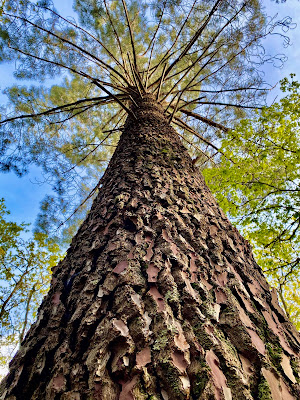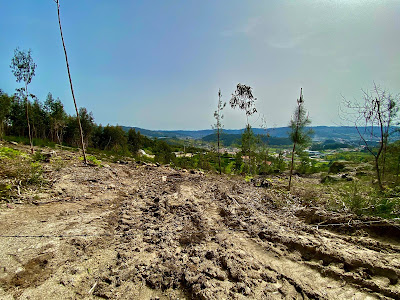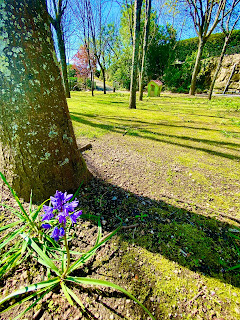Melancholia
Looking out onto the trees, I'm overwhelmed by their profound sadness. I believe that their wisdom, rising as it does from the earth, knows more than I know.
Sadness reminds me that I still love and that I still care. We have all been hurt, and as a consequence made ourselves into pseudo-Stoics, believing in our pretense, the pretense that we do not care. Resolved to be with that illusion -- that familiar nonchalance, that strange, violent numbness necessary in the face of what seems impossible to bear -- we unleash our anger. Rage. Vitriol. The "government." The ineptness of "others." The conspiracy that justifies the "police state."
Frankly, I'm not here to pass judgment. I am here to witness the frailty of those sinews that link bone to flesh. When we are in good health, we are eternal. When the stock market is on the rise, we are secure. When my lover smiles, we are in love. Until we aren't. We find ourselves exposed, which is not new, of course. Exposed is the condition of many of us who thought otherwise because we mistook the tattered thread through the woof and warp of life for an impregnable wire.
Sadness is not grief. It is more akin to melancholy. Etymologically, trace melancholy to the Greek meaning "black bile." The melancholic "humor" (think "humid") is an emanation of the body that is cold and damp, heavy and binding. It is said to be "earthy." This isn't science as convention would have it. Still ...
When psychologists and psychiatrists created the category "depression," melancholy got thrown in as some species of the genus. That is what happened with the publication of DSM-III (the 1980 version of the Diagnostic Manual of Mental Disorders that tells our mental physicians how to name what ails us). If I may, that seems a mistake.
Melancholia maybe the psychic equivalent for an economic "depression," but it is not itself "depression." Maybe melancholy is the proper response in the face of the devastation caused by Covid-19. Maybe our task is to be with melancholy for a while, and, thus, properly acquainted, discover that in our melancholy we are not mentally ill. We are simply and not so simply human. Perhaps through melancholy's subtle "humors" we avoid flights of despair and despondence, anger and careless morbidity. Maybe melancholy keeps us in tune with what is now present, an appropriate earthly quietude, not in the least debilitating but rather fortifying, for it reminds us what we care for and what cares for us.
Sadness reminds me that I still love and that I still care. We have all been hurt, and as a consequence made ourselves into pseudo-Stoics, believing in our pretense, the pretense that we do not care. Resolved to be with that illusion -- that familiar nonchalance, that strange, violent numbness necessary in the face of what seems impossible to bear -- we unleash our anger. Rage. Vitriol. The "government." The ineptness of "others." The conspiracy that justifies the "police state."
Frankly, I'm not here to pass judgment. I am here to witness the frailty of those sinews that link bone to flesh. When we are in good health, we are eternal. When the stock market is on the rise, we are secure. When my lover smiles, we are in love. Until we aren't. We find ourselves exposed, which is not new, of course. Exposed is the condition of many of us who thought otherwise because we mistook the tattered thread through the woof and warp of life for an impregnable wire.
When psychologists and psychiatrists created the category "depression," melancholy got thrown in as some species of the genus. That is what happened with the publication of DSM-III (the 1980 version of the Diagnostic Manual of Mental Disorders that tells our mental physicians how to name what ails us). If I may, that seems a mistake.







Comments
Post a Comment